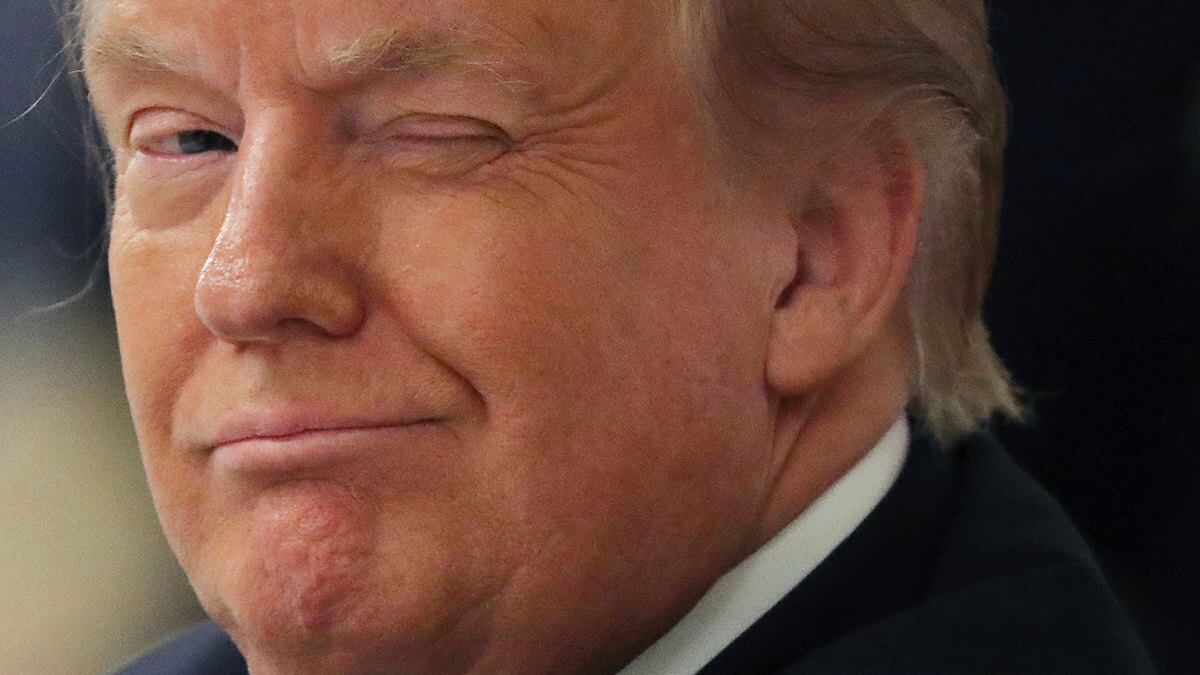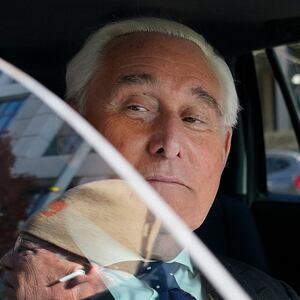For much of Donald Trump’s presidency, the phrase “Imagine if Obama had” served as a reminder of the double standards and hypocrisy required to defend Trump’s rhetoric and actions.
But when it comes to the most recent example of hypocritical corruption, the pardoning of his longtime friend and “partner-in-crime” Roger Stone—who was convicted of lying to Congress and witness tampering in the course of Special Counsel Robert Mueller’s investigation of Trump —we can look back a few more years and ask, “What if Bill Clinton did it?”
And we can answer that question, by virtue of the fact that Clinton actually did it, if “it” is abusing his pardon power to help out his friends and cronies. For younger (or more forgetful) readers, a recap is in order:
ADVERTISEMENT
On his way out the door in 2000, then-President Clinton issued more than 100 pardons, including pardoning his own brother Roger (convicted of drug charges), famed domestic terrorist Patty Hearst, former Democratic Rep. Dan Rostenkowski, Susan McDougal (prosecuted for her role in Clinton’s Whitewater scandal), and “fugitive financier” Marc Rich (whose ex-wife had made donations to Clinton-adjacent campaigns and causes, and whose plea for her ex-husband “appealed to Clinton's sense of being unjustly prosecuted during his impeachment”).
And how did conservatives react at the time? With appropriate opprobrium. Conservative writer Barbara Olson very colorfully called it a “convulsive final orgy of presidential excess,” adding that the White House had become “a palace of favors, with a memorable mélange of characters coming and going at all hours.”
Clinton’s last-minute Rich pardon looked especially sordid and self-serving, to the point where it drew strong bipartisan condemnation. Democratic Rep. Barney Frank said: “It was a real betrayal by Bill Clinton of all who had been strongly supportive of him to do something this unjustified. It was contemptuous.”
“It puts back into sharp focus all the questions about values and ethics in relation to the Clinton administration,” Democratic Rep. Barney Frank said at the time. “I think it was a mistake. I don’t know why he did this. People in the country need to be given more encouragement about public affairs, not more reasons to be cynical.”
“It was a real betrayal by Bill Clinton of all who had been strongly supportive of him to do something this unjustified. It was contemptuous,” Democratic Sen. Paul Wellstone said at the time.
Compared to Trump’s pardons (Arizona Sheriff Joe Arpaio, campaign finance law violator Dinesh D'Souza, Illinois governor Rod Blagojevich—who got caught trying to sell off Barack Obama’s Senate seat after he was elected president—Roger Stone et al.), Clinton’s seem almost quaint.
Let’s take the Stone commutation, for example. As U.S. District Judge Amy Berman Jackson said during Stone's sentencing, “he was not prosecuted... for standing up for the president. He was prosecuted for covering up for the president.”
And he was pardoned for the same reason he was prosecuted.
The message is clear. If you play ball, Trump will reward your loyalty. This also signals to future allies that they have carte blanche authority to do things like lie to Congress and intimidate witnesses, because it has been pretty clearly demonstrated that there is no downside, so long as you’re protecting Trump.
And if you don’t play ball? Consider Michael Cohen, Trump’s former fixer who refused to sign paperwork saying that he wouldn’t publish his forthcoming “dishy” book about Trump. Yeah, he ended up back in federal prison. I’m sure it’s just a coincidence.
Sadly, there isn’t much of a penalty for this kind of presidential corruption. To be sure, it’s looking like the voters will remove Trump in November, but does anyone think the pardons have anything to do with that?
It’s becoming increasingly clear that we have given executives way too much authority, and that the proper channels for punishing and mitigating abuse (elections and impeachment) are woefully inadequate. House Speaker Nancy Pelosi would like to pass legislation limiting the president's pardon power, but Article II, Section 2, of the Constitution specifically gives presidents the unilateral and absolute “power to grant reprieves and pardons for offenses against the United States…”
This authority is not subject to review. Presumably, a president can even pardon himself (stay tuned!).
Still, Pelosi has a point. Recent presidents have used their pardon powers to forgive donors and relatives (see Clinton) and even protect themselves (see Trump). One can only imagine what the future may hold, which is why a constitutional amendment to save us from the next Trump is needed.
As he has done in so many other areas, Trump has taken this pre-existing condition and made it vastly worse. Consider Mitt Romney’s tweet, which calls the Stone pardon “Unprecedented, historic corruption: an American president commutes the sentence of a person convicted by a jury of lying to shield that very president.”
It may be unprecedented, but at least one Founder saw the writing on the wall. At the Virginia Ratifying Convention, George Mason warned that the president “ought not to have the power of pardoning, because he may frequently pardon crimes which were advised by himself. It may happen, at some future day, that he will establish a monarchy, and destroy the republic.”
Not impressed with this argument, James Madison responded that Congress could simply impeach a president who did this.
Yeah. Umm. Who’s being naive, now, James?
It must be nice, it must be nice. To have Trump on your side.








